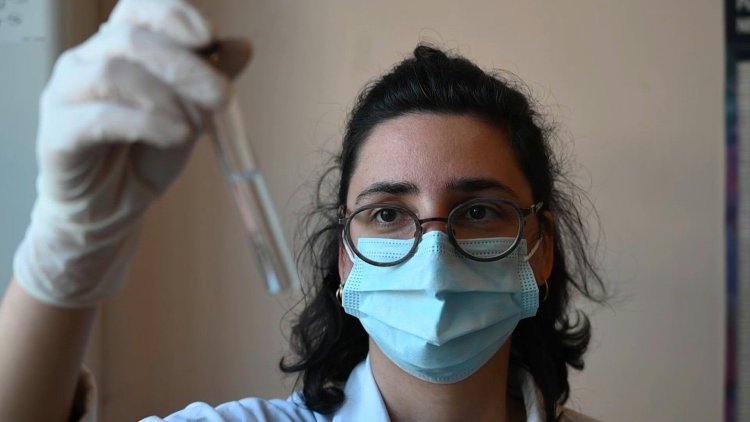Georgia scientists train viruses to save lives

A recent study warned that superbugs could kill as many as 10 million people a year when antimicrobial resistance due to overuse of antibiotics reaches a tipping point. That could come within three decades.
While phage-based medicines cannot completely replace antibiotics, researchers say they have major pluses in being cheap, not having side-effects nor damaging organs or gut flora.
"We produce six standard phages that are of wide spectrum and can heal multiple infectious diseases," said Eliava Institute physician Lia Nadareishvili.
In some 10 to 15 percent of patients, however, standard phages don't work and "we have to find ones capable of killing the particular bacterial strain," she added.
Tailored phages to target rare infections can be selected from the institute's massive collection -- the world's richest -- or be found in sewage or polluted water or soil, Kutateladze said.
The institute can even "train" phages so that "they can kill more and more different harmful bacteria."
"It is a cheap and easily accessible therapy," she added.
A 34-year-old American mechanical engineer suffering from a chronic bacterial disease for six years said he "already felt improvement" after two weeks at the Tbilisi institute.
"I've tried every possible treatment in the United States," said Andrew, who would only give his first name.
He is one of the hundreds of patients from around the globe who arrive in Georgia every year for last-resort treatment, said Nadareishvili.
With the traditional antimicrobial armoury depleting rapidly, more clinical studies are needed so that phagotherapie can be more widely approved, Kutateladze argued.
In 2019, the United States Food and Drug Administration (FDA) authorised a clinical study on the use of bacteriophages to treat secondary infections in Covid patients.
Beyond medicine, phages are already being used to stop food going off, and they "can be used in agriculture to protect crops and animals from harmful bacteria," Kutateladze said.
The institute has already conducted research on bacteria targeting cotton and rice.
Bacteriophages also have potential to counter biological weapons and combat bioterrorism, with Canadian researchers publishing a 2017 study on using them to counter an anthrax attack on crowded public places.















